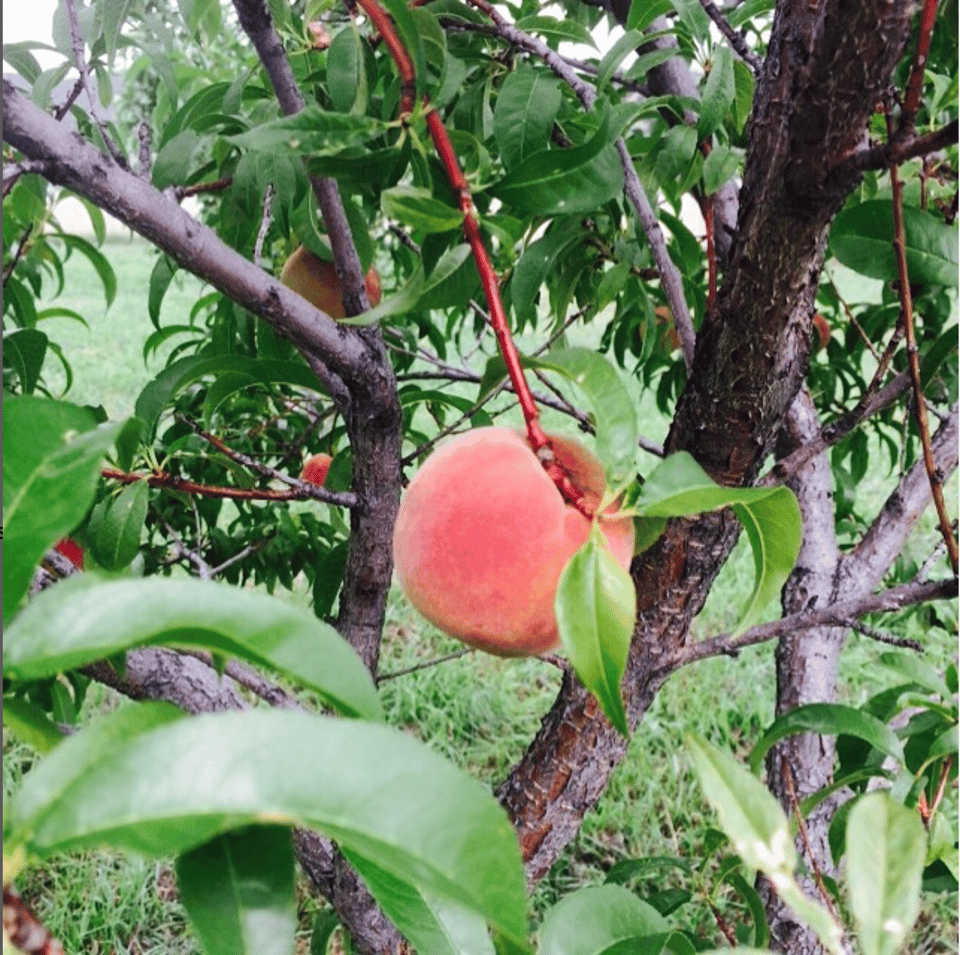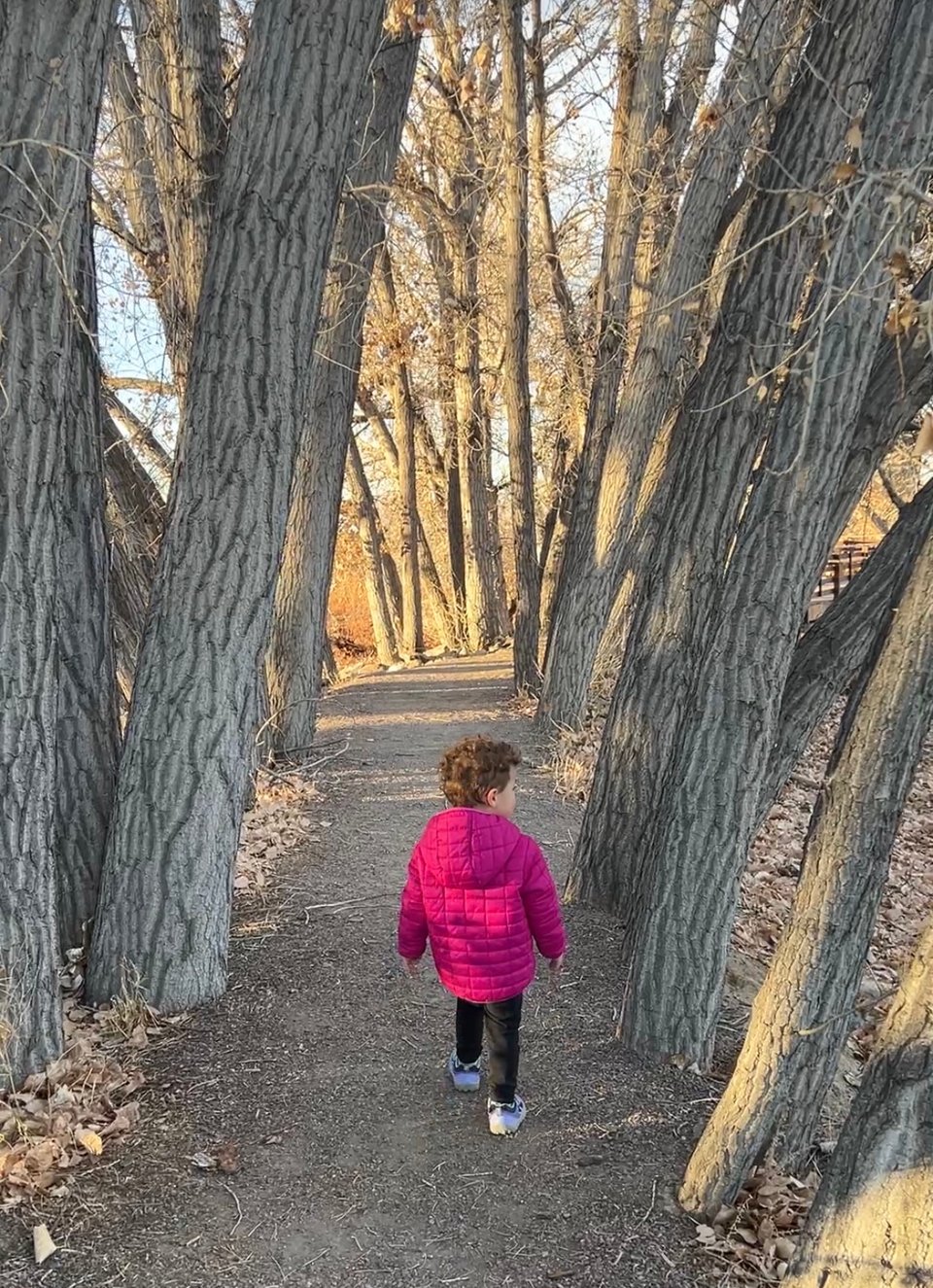How Could I Be Afraid?
Hello, dear friends. It’s been a harder week for me this week with sadness and fear and anxiety creeping in. As a result, it’s also been a week of reminding myself of strategies for self care and leaning a little extra on the people in my life. If you’re having a harder time too, know that I see you. I was surprised this week to be leaning, too, on some creative practices that are newer to me. Practices like art-making and poetry writing and thinking about this newsletter. Practices of creation as hope. I told a friend that this newsletter has felt like a ladder out of my own brain this week - a means of climbing, slowly, into optimism and, thus, back into the world. Which is not to say the world, itself, isn’t hard right now. Only that there is also hope to be found here.
I read Mary Oliver’s The Leaf and The Cloud this week and fell in love with her all over again. This is a love poem and a death poem. A poem about poetry and about being of the world - or, as Natalie Diaz says in the introduction to the recently published Little Alleluias, “the gift of being in the world while also being inseparable from the world.” Which I think might be the work of my life: being in the world while also being inseparable from it. Being of something larger than myself.
Communing with trees is one of the things that makes me feel of the world. There is a very, very good tree at the center of the campus where I went to undergrad in Washington state. This is it. It is a Giant Sequoia and I can’t help but feel of the world when I look at it, touch it, sit under its canopy.

Diaz, again: “In Mojave, or Makav, our words for body and land are bound together - land is ‘amat, and body is ‘iimat. We care for one as we care for the other, which unfolds a complex and rigorously generous relationship between the I of the human body and the bodies of other nonhuman, living beings; and the collective We who the I becomes through intentional practices and rituals of sensuality. The We is not only what makes the world but who we each are, as autonomous and individual, in the world, alongside one another. Each relies on the presence and devotion of the other. I am of consequence to You, We are of consequence to all life.”
What does it mean to be of consequence to all life? What does it mean to rely on the presence and devotion of others? What does it mean to be in complex and rigorously generous relationship with other living beings?

I think, for me, it is what Ross Gay means when he says in Wild and Precious: A Celebration of Mary Oliver, “we are profoundly made of one another.” I love this notion. Love, too, what tumbles out behind being profoundly made of each other - never being truly alone. Mary, now: “I went down all alone, to the black pond. Slow summer day. No one around. Not even a bird singing, not a wind awake, nothing. Yet nothing could ever convince me that I was alone.”
I’ve been thinking a lot about ancestor, oracle, and activist, Alice Wong, this week. Wong who believed deeply in being of consequence to other beings. A few years ago, Wong wrote an article in Orion Magazine called In Praise of Peaches. It’s beautiful and you should read it. In the essay, Wong tells the story of receiving a peach pie from her friend, Emily, during the heart of the Covid-19 pandemic. Reflecting on the peaches themselves, Wong says, “Emily described eating a peach from the Masumoto Family Farm as ‘tasting the sun, the blossom that it started from, the bees that pollinated, the air, sky, and water.’ The cycle of living and dying is a reminder that we do not exist as humans divorced from one another and nature.” In Wong’s death I am reminded, again, of this message, of this cycle, of this interconnectedness. Because, “Sometimes a peach is just a peach. Sometimes a peach is a cosmic portal to relationships that sustain and tie us to one another.”

Something about being of the world, never being alone in it, being part of a “We,” being sustained and tied to other living beings, is so comforting to me on days when life gets hard. None of these notions are uncomplicated! To be part of a “We” is to hold another’s joy, to be sure, and it is also to hold another’s pain. Being interdependent is challenging. Being present is challenging. Being devoted is challenging. And I think that being of consequence to other beings is also a deeply incredible gift. The world is hard, and yet, and yet, and yet.

As Mary says, “This is the poem of goodbye. And this is the poem of don’t know. My hands touch the lilies then withdraw; my hands touch the blue iris then withdraw; and I say, not easily but carefully - the words round in the mouth, crisp on the tongue - dirt, mud, stars, water - I know you as if you were myself. How could I be afraid?”
I love a poem of don’t know. I love things that need to be said not easily, but carefully. Both are hallmarks of the current moment for me. The not knowing (as we discussed last week) can be just as hopeful as it can be terrifying. It is neither all one nor all the other, but always a third, sticky thing. Finding the courage to say things, carefully, even when the saying isn’t easy, is creation as hope.
So, I’m choosing to walk into this tumbled, jarring, strange, and beautiful world as unafraid as I can be this week. I’m choosing to know the dirt, mud, stars, water as if they were myself. I’m choosing to acknowledge the profundity of my making and lean away from the “I” and into the “We”. I’m choosing communion even when it hurts. I’m choosing to touch a tree and marvel at its ancient beauty, to eat a peach, to let my heart beat just a little faster at the sight of the rising moon. Join me?
You might also join me in donating to the Disability Visibility Project in honor of Alice Wong. This organization is doing important work to create, share, and amplify disability media and culture. I also highly encourage you to read both Wong’s individual work and edited collections including the forthcoming Disability Vulnerability which tops my to-be-read pile.